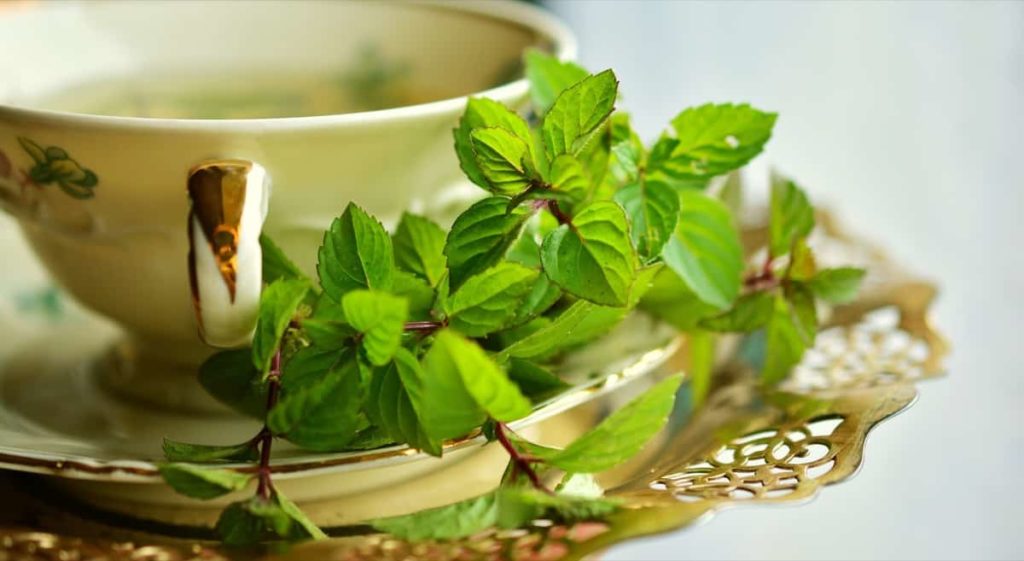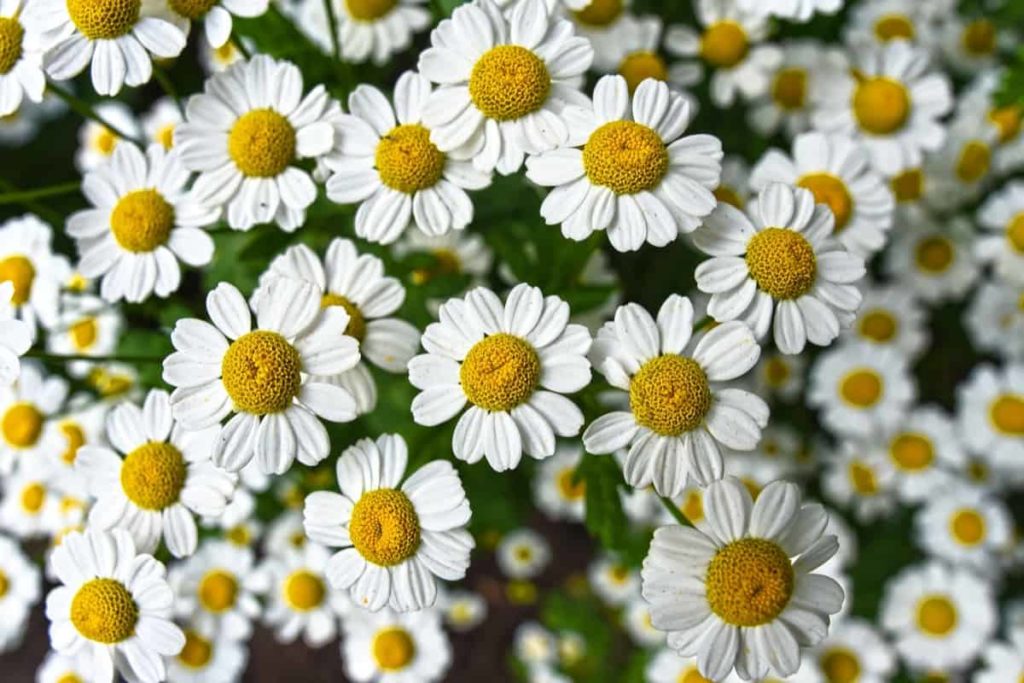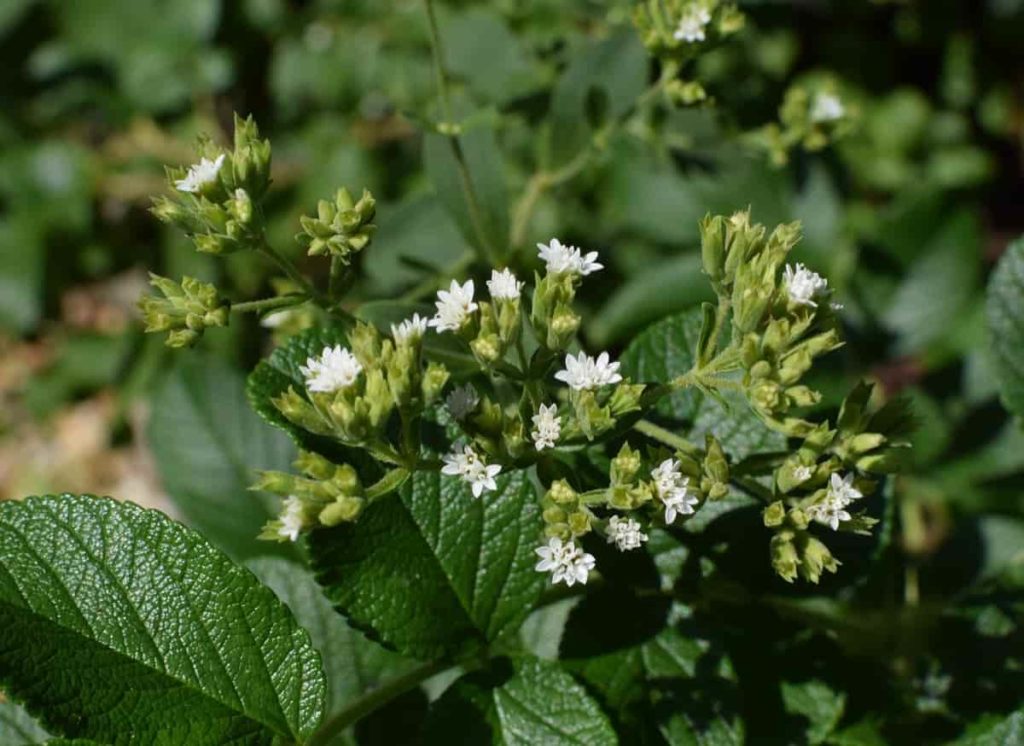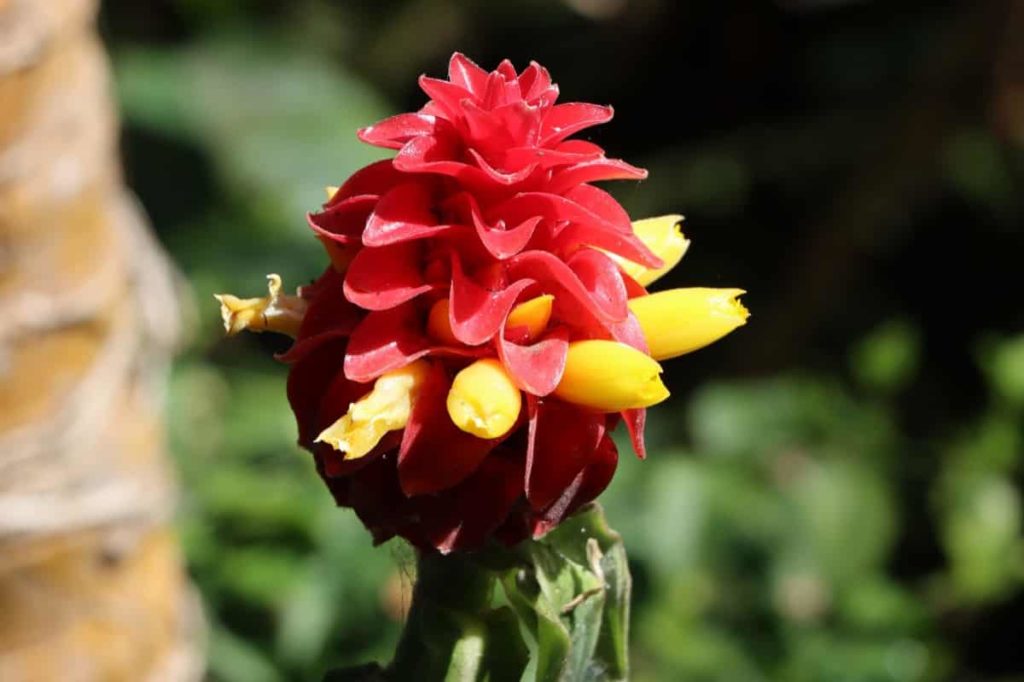Introduction to top 15 fast growing medicinal herbs: It is known that medicinal plants, also called medicinal herbs, have been around since prehistoric times. Plant-eating mammals and insects attack plants by consuming hundreds of chemical compounds produced by plants. As a result, many phytochemicals have been identified as having potential biological activity.

However, a single plant contains a variety of phytochemicals, so the effects of using a whole plant as medicine are unclear. Herbs are plants or plant parts used for their scent, flavor, or medicinal properties. One type of herbal medicine is dietary supplements. The plants are available in tablets, capsules, powders, teas, extracts, and dried or fresh plants. People use herbal medicines to remain healthy or improve their health.
Top 15 fast growing medicinal herbs
Chamomile
Chamomile is a common anti-anxiety and relaxation remedy in the U.S., considered a cure-all by some. In addition, it is used in Europe as a wound-healing agent and as an anti-inflammatory. However, very few studies have examined how well it works for any given condition. You can drink chamomile tea or apply it to your skin as a compress. However, taking it may increase drowsiness caused by medicines or other supplements or herbs.
In case you miss this: Top 15 Herbs to Grow on the Terrace

Chamomile can also interfere with the way some medicines are metabolized, causing people to have too much medication in their bodies. Skin irritation caused by radiation cancer treatments is typically treated with Chamomile for the skin (topical). Chamomile capsules may also prevent vomiting during chemotherapy.
Echinacea
Colds, flu, infections, and wound healing can all be treated or prevented with echinacea. The effectiveness of echinacea in preventing or shortening the course of a cold has been studied extensively, but no conclusive results have been found. There is, however, some evidence that echinacea may be beneficial for upper respiratory infections.
Using this medication for a short period is advised because other studies have shown that long-term use can affect the immune system. Make sure you speak to your healthcare provider about any possible interactions with your current medicines. Echinacea is more likely to cause an inflammatory reaction to people allergic to plants in the daisy family. Daisies, chrysanthemums, marigolds, and ragweed are members of the daisy family.
Feverfew
Traditional medicine used feverfew to treat fevers. It is now commonly used to treat arthritis and prevent migraines. There has been some research showing that specific feverfew preparations can prevent migraines. If the leaves are chewed, mouth ulcers can result. Digestive irritation can also occur. A person who suddenly stops taking feverfew for migraines may experience headaches again. Nonsteroidal anti-inflammatory drugs may alter the effects of feverfew. It is not to be used in combination with warfarin or other anticoagulants.
In case you miss this: Top 10 Herbs to Grow in Hydroponics

Ginger
Herbs such as ginger are commonly used to ease nausea and motion sickness. Many peoples also suggest that ginger may relieve nausea caused by chemotherapy and pregnancy. Other uses of ginger are being investigated, such as in surgery and as an anticancer agent. A wide range of actions is possible due to its potent anti-inflammatory and antioxidative properties. However, some people have reported experiencing bloating, gas, and heartburn as side effects.
Lemongrass
It smells sweeter than lemon, as its name suggests. It also has medicinal benefits and is an effective insect repellent. It is commonly consumed in the form of Lemongrass Tea. The herb is known to have numerous health benefits, such as relieving digestive problems, enhancing kidney functioning, coughing, congestion, headaches, stomachaches, lowering cholesterol, and preventing hair loss. In addition, it has antidepressant properties, which aid in reducing depression anxiety and improving mental health.
Ajwain
Herb is quickly grown and essential in Indian cooking. It has a strong scent and is used in a variety of ways. Ajwain seeds are best consumed with lukewarm water. Acidity, digestive problems, and stomachaches are all relieved by this supplement. It is smoked or vaporized. By putting ajwain seeds in a thin cloth or pot, headaches, cough, and colds are treated. In combination with mustard oil, its pungent smell repels mosquitoes.
Sage
Additionally, Sage has been used as a medicine for thousands of years for inhaling, chewing leaves, making ointments and paste, and consuming even a small amount boosts memory and mental agility. Treatment of Alzheimer’s disease by improving memory and concentration has shown promising results. Sage also improves the immune system and bones. Sage also contains antioxidant properties that protect the heart, organs, joints, and brain from many dangerous diseases.
Stevia
Stevia, also known as a sweet herb, was used more than a thousand years ago. Leaves of this plant contain a non-caloric natural sweetener that can be used to sweeten tea and as medicine. Stevia can also be used as a home remedy for stomach problems, burns, and contraception. You only need a little bit to sweeten morning tea or a batch of healthy baked goods. The natural sweetener stevia is two hundred to three hundred times sweeter than sugar. In addition, the health benefits of stevia are beneficial for people with diabetes.
In case you miss this: Top 20 Quick Growing Herbs In Pots/Containers

Peppermint
Ayurvedic herbal medicine Peppermint can be grown at home quickly. Freshness and taste are often associated with it as a cooling effect. It helps reduce irritable bowel syndrome. It contains salicylic acid, which is used for treating acne. It boosts the immune system, which improves the body’s strength and energy. It relieves hypertension by lowering blood pressure.
Thyme
Thyme is a perennial herb known for its strong antiseptic properties. It is also used in cooking and as an ornamental. It helps with chest and respiratory problems, including bronchitis, chest congestion, and coughs. It boosts immunity as it is rich in manganese, iron, fiber, copper, etc. Because of its fungicidal properties, it can be used as a disinfectant against air pollutants. As a result, cholesterol and blood pressure are reduced. Thymol, the active compound in the herb, promotes overall digestive health.
Lavender
Its sweet scent and beautiful flowers make it a popular plant. Lavender oil has a variety of medicinal properties. It is a mild antidepressant that relieves stress and anxiety and is a healing medicinal plant grown at home. Lemonades, salads, butter, etc., can be made using flowers. The oil of lavender is effective against infections that resist antifungal medications. It accelerates the healing of wounds. Hair loss can be controlled by lavender oil.
Tulsi
Tulsi is one of India’s most effective medicinal plants for your home garden. Basil or tulsi has many medicinal applications and has also been called the ‘Queen of Herbs’ in Ayurvedic texts. It helps relieve colds, coughs, fevers, sore throats, congestion, and bronchitis. It heals gastrointestinal disorders such as ulcers, vomiting, menstrual cramp, indigestion, etc. It lowers blood pressure, reduces stress, and controls cholesterol levels by regulating cortisol levels.
In case you miss this: Best Herbs For Container Gardening, and Tips

Parsley
Parsley is an essential plant for any garden, owing to its plethora of health benefits. It contains plenty of vitamins, nutrients, and antioxidants that are beneficial to our health. It is commonly used to dress many dishes. You can use it to treat toothaches, bruises, insect bites, rough skin, and digestive disorders. It also helps fight Kidney Stones, Urinary Tract Infections, and Gallbladder Infections. It also boosts immunity and promotes bone health.
Aloe Vera
The Aloe Vera plant is the most common houseplant because it is easy to grow and has many medicinal uses. The thick, fleshy, green-grey leaves of Aloe Vera grow at its base without a stem. Each leaf has white teeth along the margins. There are a variety of diseases that aloe leaves can treat, including hair loss, sunburns, skin disease, etc. The oil is soothing, moisturizing, and healing. As a weight-loss treatment, aloe gel also treats hair growth, shiny hair, asthma, stomach ulcers, bowel diseases, itching, and inflammation.
Costus
It is best to grow beautiful plants with stunning flowers in a warm climate, and they can be brought indoors in the winter when the weather is cold. These plants can reach a height of 2-3 meters. A chemical found in the roots of worms kills them. The roots and oils of herbs are used to prepare medicines. Herb roots are often used to treat parasitic infections.
In case you miss this: Easy Herbs To Grow In Pots – Ideas, Planting In India

The oil is used to treat asthma, coughs, and intestinal diseases such as cholera. Additionally, the oil is used as a digestive stimulant and a tonic. Foods and drinks are prepared with the oil for its flavor. Additionally, the oil is used in cosmetics and manufacturing as a fixative.
Commonly asked questions about fast-growing medicinal herbs
1. What can medicinal herbs be grown at home?
- Tulsi
- Aloe Vera
- Thyme
- Peppermint
- Rosemary
2. Which is the best herbal medicine to take?
- The herb ginger is a common ingredient in herbal medicine
- One of the most popular herbal medicines is Chamomile, a flowering plant that is also a flowering plant
3. What is the most potent medicinal herb?
Without a doubt, turmeric is the most potent herb on earth. Most of it is grown in China, Indonesia, India. Turmeric is related to ginger. It contains several compounds that have medicinal properties. For example, turmeric boosts the body’s antioxidant enzymes.
4. What herb is known as the queen of medicinal herbs?
Aloe vera is familiar to almost everyone. Due to its medicinal properties, it has been called the queen of plants. Today, many products contain aloe vera. Therefore, it is the most well-known and best-marketed medicinal plant globally.
- Where to Place Indoor Plants in Your Home
- How to Grow Tomatoes Organically at Home: A Comprehensive Guide
- Organic Gardening on a Budget: Low-Cost Methods and Materials
- Gongura Seed Germination and Planting Methods
- Cabbage Seed Germination and Selection
- Broccoli Seed Germination and Selection
- Asparagus Seed Germination and Variety Selection
- Seasonal Flower Gardening: Best Practices for Spring, Summer, Fall, and Winter
- How to Grow Hibiscus from Flower
- Plantation Ideas for Home Decoration: A Beginners Guide
- Flower Garden Designs and Layouts for Beginners
- Planting and Spacing Techniques in Papaya: A Beginner’s Guide
- Growing Gold: Essential Techniques for Planting Pineapples
- How to Make Kalanchoe Plant Bushy: Home Remedies and Solutions
- 11 Reasons Why Your Gardenia is Not Blooming: Home Remedies and Solutions
- Eco Elegance: The Guide to Designing a Drought-Tolerant Landscape
- Gardening on a Slope: Strategies for Hillside Landscaping
- Nourish and Flourish: Top Organic Mulches for Thriving House Plants
- Everything You Want to Know about Indian Mogra Flower: Discover Uses and Growing
- Green Thumb Success: Expert Tips for Cultivating Greenhouse Pumpkins All Year Round
- Maximize Growth & Flavor: The Ultimate Guide to Companion Planting in Herb Gardens
- How to Control Rhododendron Problems Naturally: Home Remedies and Organic Ways to Fix Them
- Natural Magic: The Remarkable Benefits of Cinnamon for Plants
- Best Steps to Revive Dying Tulip with Natural and Organic Treatment
- 10 Reasons Why Your Angel Trumpet is Not Blooming: Remedies and Treatment
- How to Fix Periwinkle Leaf and Flower-Related Problems: Natural Remedies and Solutions
- How to Fix Zinnias Leaf and Flower Problems: Discover Natural and Home Remedies
- Organic Steps to Induce Lemon Tree Flowers: A Comprehensive Guide
- Bloom Booster: Crafting the Perfect Homemade Bougainvillea Fertilizer
- Optimizing Growth: A Guide to Applying NPK Fertilizer for Potted Plants
- 10 Best Homemade Fertilizers for Rubber Plant: DIY Recipes and Application Method
- How to Boost Female Pumpkin Flowers: Effective Steps for More Flowers and High Yields
- Transform Your Indoor Garden: Top Benefits of Pink Salt for Houseplants
- 10 Best Homemade Fertilizers for Peacock Plants (Calathea): Easy DIY Guide
- Unlock Blooms: 9 Reasons Why Your Potted Chrysanthemum is Not Blooming
- 8 Reasons Why Your Potted Hibiscus is Not Blooming: Fix it with Simple Solutions